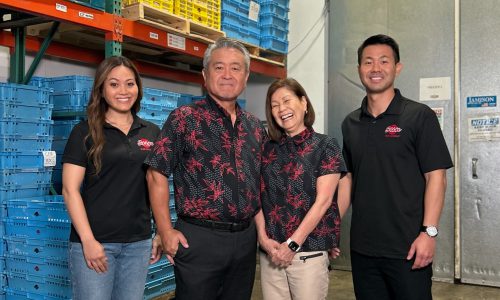The violent riots at the U.S. Capitol in early January shocked Americans and sent a ripple effect through the business community, prompting reactions from top CEOs and business leaders. The riots were just the latest in a string of concerning developments from the last year — the COVID-19 pandemic, a wildly contentious general election, and a roller-coaster economy. However, while just about everyone was glad to bid good riddance to 2020, 2021 promises to be challenging, too. COVID-19 is still with us, and there remain strong divisions in the country.
Without a doubt, the political beliefs and other ideals held by Americans are also present at work, prompting many to ask: How should organizations manage politics in the workplace? Here are three actions your organization can take to build unity and guide employees amid times of political turbulence:
Set the tone at the top
It’s no secret that organizational leaders set an example for employee behavior and mindset in the workplace. By speaking up as many did after the Capitol riots, leaders ensure that employees, candidates, and customers understand where your organization stands on important issues. However, words must be backed up by action. If you want to unite employees behind a common goal while also remaining open to dialogue and the free expression of ideas, it’s necessary to make sure leaders are involved in making it happen.
In a 2020 Gartner survey, 36 percent of employees said the topic of the U.S. presidential election led them to avoid a coworker because of their political views. Company leaders can help to avoid such scenarios and set a good example for employees through the following actions:
• Make sure you understand and support company policies regarding political activity. Friendly discussions are acceptable and encouraged, while activities such as hanging political posters or campaign stickers at work (or during Zoom work calls) are usually prohibited.
• Talk with your team about what’s happening on the political stage without taking sides or promoting a particular candidate.
• Remember that it’s possible to have political discussions at work while also promoting mutual respect and understanding.
Provide a safe place for expression
Instead of keeping their work lives compartmentalized from what’s going on in the world, many employees appreciate having an outlet where they can engage in healthy dialogue with others. Though you don’t want to stoke conflict or create disruption in the workday, it’s a good idea to create an environment where employees can express their ideas, even about some political topics. Political talk is going to happen anyway. A Glassdoor survey found that 57 percent of employees have discussed politics at work.
According to a multi-year Google study, psychological safety — when employees feel safe expressing their thoughts and ideas — is the most important component of team effectiveness. To cultivate an environment of safety and inclusion among the teams comprising your workforce, take actions that make the most sense for your culture. For example, moderated focus groups, company training sessions, and one-on-one conversations can all be effective ways of creating a safe place for employees to engage in productive dialogue.
Recognize generational differences
While some might view politics as too polarizing a topic for the workplace, younger generations see it differently. millennials and Gen Zers (anyone born after 1996) are more likely to bring political issues to the workplace. Research by Peakon found that 18-34 year olds are more likely than older generations to discuss politics with coworkers. Moreover, younger generations look for employers that align with their views of the world. In one survey, 93 percent of Gen Zers said that a company’s impact on society affects their decision to work there. To build a diverse and inclusive culture, it will be necessary to consider the needs of different generations and their varied preferences for mixing work and politics.
Freedom of expression is at the heart of our great democracy, and it can also have a place at work. With committed leaders and opportunities for employees to respectfully discuss important national and world issues, you can build a more inclusive culture and an empowered workforce.






